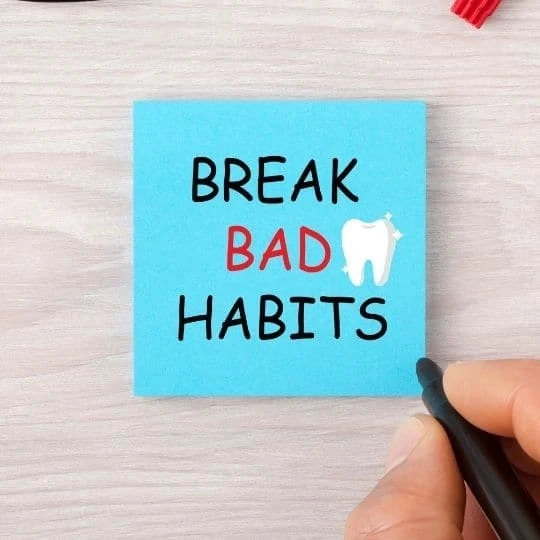Unlike braces and dentures, dental implants can last for a lifetime. However, patients must give them the proper care it needs post-operation days and months after. Starting good habits helps you ensure the dependability of your titanium implants and give confidence to your smile as good as an actual tooth.
Patients must follow the instructions given by the dental surgeon and to have regular check-ups to ensure that everything is healing well. Make sure you’re aware of these problematic habits that can reduce the efficacy of your dental implant.
Starting With Hard Diets
Going on hard diets is impractical because you’ll experience pain, irritation, and swelling in their gums, and inflammation of the tissue around the implant chewing on the tenderest meat with your fresh implant that hasn’t healed yet.
In addition, the food particles will collect around the implant and cause irritation and inflammation of the gums, which can lead to infections. Avoid having to take additional painkillers and antibiotics by following the dental specialist’s highly-recommended soft diet.
Smoking
The nicotine in cigarettes increases plaque buildup that leads to gum disease and tooth loss. In addition, smoking can also lead to unhealthy levels of bacteria and damage to the tissue around implants.
While nicotine may not wear away at dental implants, the smoke and other chemicals in cigarettes can lead to inflammation, which can cause severe pain, irritation, and possible misalignment of implants.
Avoid smoking and chewing tobacco while your dental implants heal. You can speed up the process of healing entirely by doing this and save yourself added costs on painkillers.
Fingernail Chewing
People often chew their fingernails include nervous habits, self-soothing, obsessive-compulsive disorder, and boredom. It’s a symptom of a bigger problem and needs to be resolved, especially if you’ve had a fresh implant and have to help your gums and dental implant to remain in place.
Fingernail chewing can cause damage to a dental implant by creating a rough surface which can lead to periodontal problems. The germs and bacteria in fingernails can get in the implant section and can cause infections that slow down your implant’s healing. Thus, see a psychologist or try your best not to chew your fingernails.
Forgetting to Floss
Flossing after dental implant surgery removes oral bacteria that is present in your mouth and around the implant site. Used with mouthwash, flossing maximizes the cleanliness and hygiene of your oral region, especially the one around your fresh implant.
Floss helps dislodge food that sticks to the teeth and to remove debris and plaque from between the teeth. Second, it stimulates the gums, allowing your teeth to remain healthy. Of course, do not floss around the implant area, and do it only after your dentist confirms that it has healed.
Hard Brushing
Hard brushing can damage new dental implants, especially if they have not been integrated into the bone.
Brushing too hard can damage the tissues of the mouth. If you have new dental implants, you may want to be careful with brushing your teeth to avoid damaging the tissues of the mouth and the implants themselves.
Eating Sugary Food
Sugary foods increase the risk of cavities and acid erosion on dental implant surfaces because they increase the production of saliva, which contains organic acids that can erode and undermine bone or dental implants. Organic acids found in saliva help to dissolve plaque from teeth and promote the growth of healthy, vital biofilm which helps to protect teeth from cavities.
Ignoring Dental Appointments
Lastly, make sure you always visit your doctor during scheduled appointments. Doing this will give you insight about your dental implant’s current situation, update your medication schedule, and see if everything is going according to your post-dental care needs.
Dr. William Chong is the best dentist you can find for implants and dental surgeries. Book a schedule for your dental implant and restore your smile today!
0


